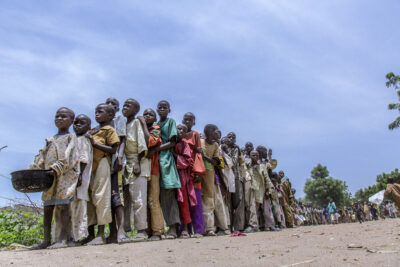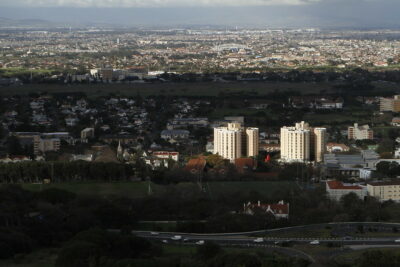The Social Science Research Council’s African Peacebuilding Network (APN) had the opportunity to sit down with Dr. Tendai Joseph Chari, a 2017 Individual Research Grant recipient. This interview was conducted on June 21, 2017, during the APN 2017 Training Workshop on Research Methods in Accra, Ghana. It has been edited for length and clarity.
APN: Could you start by telling us a little about yourself and your APN project?
Dr. Tendai Joseph Chari: I am a senior lecturer at the University of Venda in South Africa. My APN project revolves around the Zimbabwean diaspora media’s reporting on conflicts in the homeland, specifically, reports on the negotiations leading up to the formation of a government of national unity in 2009, in the aftermath of the 2008 post-election violence.
How did you first become interested in this topic?
I have been working on issues related to politics and conflict for a while. As a matter of fact, my PhD dissertation was on media representation of election violence in Zimbabwe. After studying the local media, I realized that there was another significant component of the Zimbabwean media based outside of the country. I thought it would be interesting to find out if, and how, local media reporting on domestic issues differs from how the diaspora media reports on events in Zimbabwe. I was curious to establish whether there are substantive differences between the two, and once I identified them, I wanted to analyze these differences in detail.
Could you speak in more detail about the research methods you are planning to use?
My main method of analysis is discourse analysis. I seek to use Michel Foucault’s discourse theory. I am more interested in discursive constructions, which I think will give me deeper insights. As you know, discourse is ideological and part of the framing is influenced by certain ideological values, among other things. So, if I employ the discursive approach, I will be able to better understand the issue of bias in diaspora media.
I would like to combine discourse analysis with the framing approach, which speaks to how news is selected, what is given salience, what is downplayed, and so on. The media frames issues in a certain way in order to trigger reactions and generate specific opinions on those issues. Since discourse has consequences for behavior in the real world, I think that employing discourse analysis will help me understand the relationship between how the media reports on certain issues, and the kinds of actions they anticipate being taken by people in response, be it the political protagonists, the outside community, or the local community.
Have you found the research methods training workshop to be helpful in developing your research project?
Yes, I should actually say that the workshop has been very helpful to me, and to an extent that I did not anticipate. When I arrived here with my project proposal, I was quite confident that nothing was going to change. I believed I had put in enough effort and had thought through the issues sufficiently, but I was pleasantly surprised to find that there are certain things I could incorporate into my research to fine-tune it and make it stronger and more pointed. For example, after speaking with my mentor Professor Thomas Tieku, it dawned on me that I needed to change the framing of my research questions. Professor Tieku suggested that I foreground the why question more than the how question. The way I had initially framed my research was to prioritize the how, for example “how does the diaspora media represent or frame issues in Zimbabwe?” But after the discussion with my mentor I realized that it would be much more beneficial from an academic point of view to foreground an intriguing question which would lead me to generate more interesting and significant data that could actually broaden knowledge in my subject area, especially given the fact that there is very little empirical data that has been produced on peace journalism. In all, I found the workshop to be fruitful and my engagements and interactions with fellow grantees were quite enriching.
How are you feeling as you prepare to start your research project?
During the workshop, I have gained a lot of insights from my mentor, fellow grantees, and the various presenters, which has left me feeling more certain that I will be able to tackle my research project in a more robust and organized way. I am now more confident about my proposal and I believe it has the potential to generate useful knowledge in the field of peace journalism.
In closing I would like to ask how you heard about and came to apply for the APN Individual Research Grant?
I found out about the African Peacebuilding Network through my university’s international relations department, which posted the APN’s Call for Proposals on the university website.
Thanks for coming all the way to Accra!
You are most welcome. Thank you.
Tendai Joseph Chari is a senior lecturer in the Media Studies Department, School of Human and Social Sciences, University of Venda, South Africa. He holds a PhD in Media Studies from the University of Witwatersrand, South Africa, and a master’s in media and communication studies from the University of Zimbabwe. Dr. Chari serves on the editorial boards of international academic journals such as the Western Journal of Mass Communication, Journal on Media and Communications (JMC). Previously, he was the chairman of Zimbabwe Television (ZTV), a board member of the Zimbabwe Broadcast Holdings (ZBH) (2004-2006), and a member of the Media Commission (MIC) in Zimbabwe (2007-2008). He is a 2017 APN Individual Research Grant recipient.












